U.S.-French Earth science satellite ready to ship for December launch
Wednesday, 07 September 2022 22:07
A joint U.S.-French Earth science mission is ready to be delivered to California for a launch now scheduled for early December, a slight delay caused in part because of transportation issues.
The post U.S.
What's next for Artemis I after 2nd scrub?
Wednesday, 07 September 2022 19:51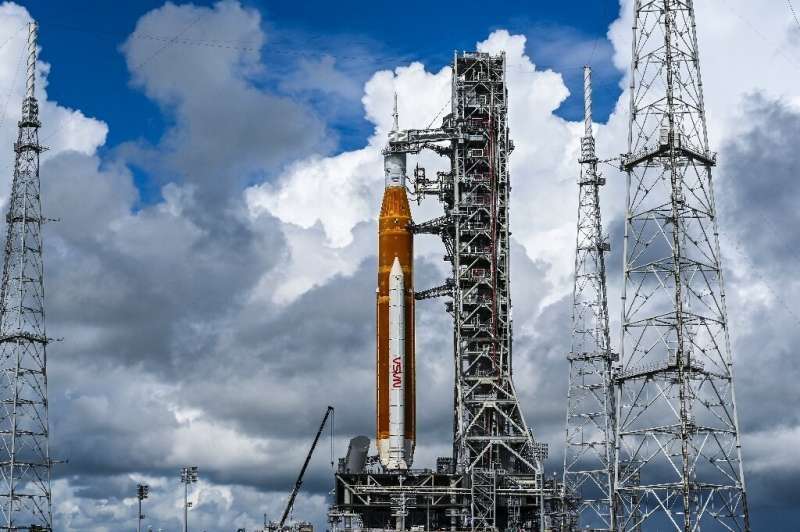
What went wrong with Artemis I was on the launch pad at Kennedy Space Center, so that's where NASA has decided to try and fix it.
On Tuesday, mission managers announced they would hold off rolling back to the Vehicle Assembly Building the 5.75 million-pound, 322-foot-tall combination of the Space Launch System rocket, Orion capsule and mobile launcher.
Instead, they will stay at Launch Pad 39-B to work on the source of the Saturday's scrub, which was the second scrub of NASA's attempt to send the uncrewed Artemis I on a multiweek mission to the moon. It's the first step in its eventual plans to return humans, including the first woman, to the lunar surface for the first time since 1972.
GAO: Defense, intelligence agencies need a better plan to buy commercial satellite imagery
Wednesday, 07 September 2022 18:43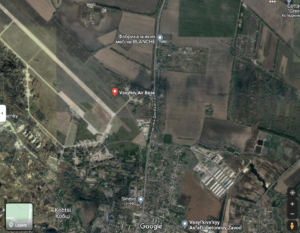
U.S. defense and intelligence agencies are not taking advantage of available commercial imagery due to slow and cumbersome procurement methods, said a GAO report.
The post GAO: Defense, intelligence agencies need a better plan to buy commercial satellite imagery appeared first on SpaceNews.
Artificial gravity provides partial protection for biology in space
Wednesday, 07 September 2022 14:39
Space travel to the moon, Mars, and beyond can expose astronauts to extreme conditions, causing potential health issues. To prepare for future long-duration missions, NASA studies how the effects of space—changes in gravity, radiation, and more—impact "model organisms," or other kinds of life that are biologically similar to humans. New findings from a study using fruit flies on the International Space Station suggest that space travel has an impact on the central nervous system, but that artificial gravity provides partial protection against those changes.
"Microgravity poses risks to the central nervous system, suggesting that countermeasures may be needed for long-duration space travel," said Dr. Janani Iyer, a Universities Space Research Association (USRA) project scientist at NASA's Ames Research Center in California's Silicon Valley and an author on the paper published today in Cell Reports.
Pregnancy in space: Studying stem cells in zero gravity may determine whether it's safe
Wednesday, 07 September 2022 12:39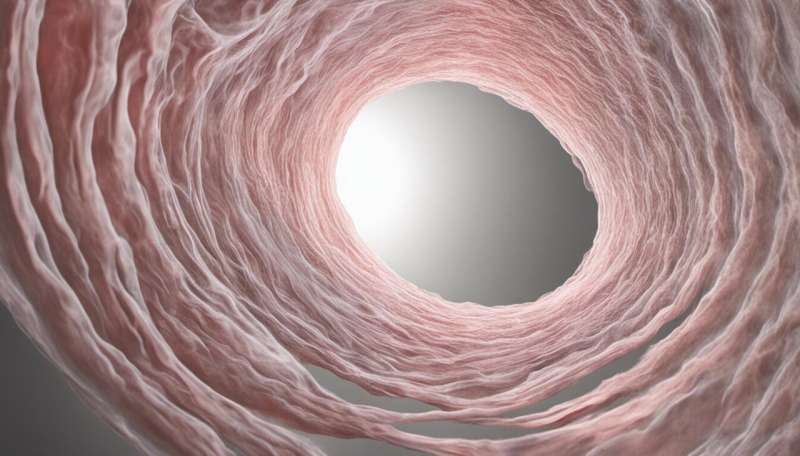
Space is a hostile, extreme environment. It's only a matter of time before ordinary people are exposed to this environment, either by engaging in space tourism or by joining self-sustaining colonies far away from Earth.
To this end, there needs to be a much better understanding of how the environmental dangers of space will affect the biology of our cells, tissues, organs, and cognition. Crucially for future space colonies, we need to know whether we can easily reproduce in environments other than those found on Earth.
The effects of radiation on our cells, producing DNA damage, are well documented. What's less clear is how lower levels of gravity, what scientists call microgravity, will affect the mechanisms and rhythms taking place within our cells.
Scientists are only just beginning to investigate how activity in our cells might be affected by exposure to microgravity. Crucially, experiments on embryonic stem cells, and models of how embryos develop in their first few weeks in space, will help us determine whether it's possible for humans to produce offspring in the extraplanetary colonies of the future.
Near Space Labs offers free imagery for researchers
Wednesday, 07 September 2022 12:30
Near Space Labs announced plans Sept. 7 to provide free high-resolution Earth imagery to researchers, universities and nonprofit organizations.
The post Near Space Labs offers free imagery for researchers appeared first on SpaceNews.
India’s Skyroot Aerospace raises $51 million ahead of inaugural launch
Wednesday, 07 September 2022 12:21
Skyroot Aerospace says the round will fund “infrastructure and initial developmental launches, enabling us to achieve commercial operations next year.”
The post India’s Skyroot Aerospace raises $51 million ahead of inaugural launch appeared first on SpaceNews.
BAE Systems developing multi-sensor satellite cluster for military intelligence
Wednesday, 07 September 2022 12:17
BAE Systems said Sept. 7 it is developing its first multi-sensor satellite cluster to gather intelligence for military and disaster response needs in 2024.
The post BAE Systems developing multi-sensor satellite cluster for military intelligence appeared first on SpaceNews.
Albedo announces $48 million Series A funding round
Wednesday, 07 September 2022 12:00
Earth observation startup Albedo raised $48 million in a Series A funding round.
The post Albedo announces $48 million Series A funding round appeared first on SpaceNews.
KMI wins three Space Force study contracts for debris cleanup technology
Wednesday, 07 September 2022 11:00
Kall Morris Inc. announced Sept. 7 it received three study contracts for debris-remediation technologies under the Space Force’s Orbital Prime program.
The post KMI wins three Space Force study contracts for debris cleanup technology appeared first on SpaceNews.
ESA–EGU Excellence Award 2023 open for nominations
Wednesday, 07 September 2022 11:00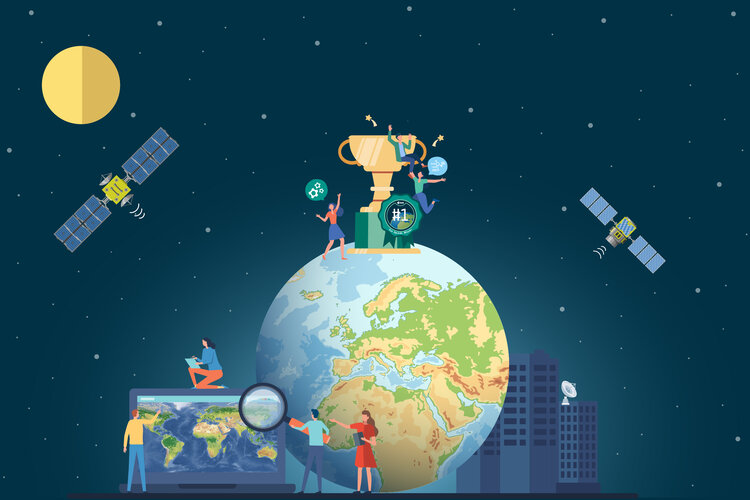
Following the success of the inaugural ESA–EGU Earth Observation Excellence Award in 2021, it’s now time to lodge your nomination for someone or for a team that deserves recognition for their innovative use of Earth observation. The call for nomination opens today and will close on 7 December.
The award winners will be announced and presented at the European Geosciences Union (EGU) General Assembly, which takes place on 23–28 April 2023.
OneWeb takes $229 million charge for canceled Soyuz launches
Wednesday, 07 September 2022 10:35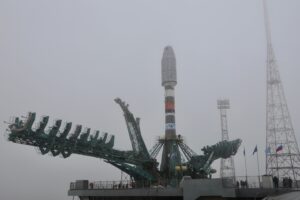
OneWeb took a $229 million charge this year linked to the termination of its Soyuz launch contract and dozens of satellites stranded in Kazakhstan after Russia’s invasion of Ukraine.
The post OneWeb takes $229 million charge for canceled Soyuz launches appeared first on SpaceNews.
Rocket Lab signs with USTRANSCOM to explore using Neutron and Electron tp deliver cargo worldwide
Wednesday, 07 September 2022 09:12 Rocket Lab USA, Inc. (Nasdaq: RKLB) ("Rocket Lab" or "the Company"), a global leader in launch services and space systems, has announced that it has signed a Cooperative Research and Development Agreement (CRADA) with the United States Transportation Command (USTRANSCOM) to explore the possibility of using the Company's Neutron and Electron launch vehicles to transport cargo around the world. Th
Rocket Lab USA, Inc. (Nasdaq: RKLB) ("Rocket Lab" or "the Company"), a global leader in launch services and space systems, has announced that it has signed a Cooperative Research and Development Agreement (CRADA) with the United States Transportation Command (USTRANSCOM) to explore the possibility of using the Company's Neutron and Electron launch vehicles to transport cargo around the world. Th Gamma rays from neighboring galaxy related to millisecond pulsars
Wednesday, 07 September 2022 09:12 A team of researchers, including UvA physicists and astronomers, has studied gamma rays caused by the Sagittarius Dwarf, a small neighbouring galaxy of our Milky Way. They showed that all the observed gamma radiation can be explained by millisecond pulsars, and can therefore not be interpreted as a smoking gun signature for the presence of dark matter. The results were published in Nature Astron
A team of researchers, including UvA physicists and astronomers, has studied gamma rays caused by the Sagittarius Dwarf, a small neighbouring galaxy of our Milky Way. They showed that all the observed gamma radiation can be explained by millisecond pulsars, and can therefore not be interpreted as a smoking gun signature for the presence of dark matter. The results were published in Nature Astron Antenna enables advanced satellite communications testing
Wednesday, 07 September 2022 09:12 On the rooftop of an MIT Lincoln Laboratory building sits a 38-foot-wide dome-shaped radio antenna enclosure, or radome. Inside the climate-controlled environment, shielded from the New England weather, a steel structure supports a 20,000-pound, 20-foot diameter satellite communications (SATCOM) antenna. The antenna - called the Multi-Band Test Terminal (MBTT) - can rotate 15 degrees per second,
On the rooftop of an MIT Lincoln Laboratory building sits a 38-foot-wide dome-shaped radio antenna enclosure, or radome. Inside the climate-controlled environment, shielded from the New England weather, a steel structure supports a 20,000-pound, 20-foot diameter satellite communications (SATCOM) antenna. The antenna - called the Multi-Band Test Terminal (MBTT) - can rotate 15 degrees per second, 
